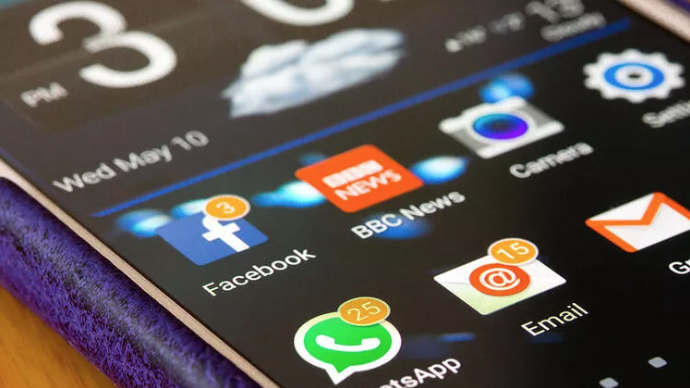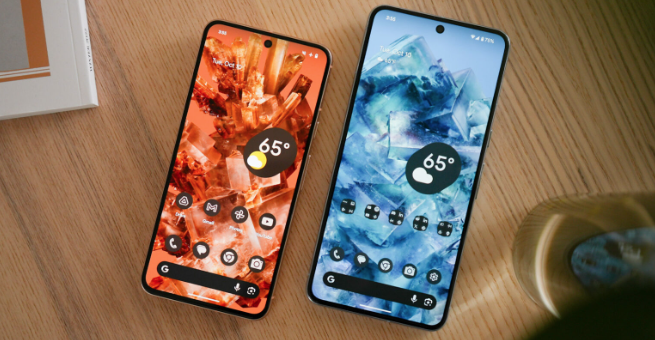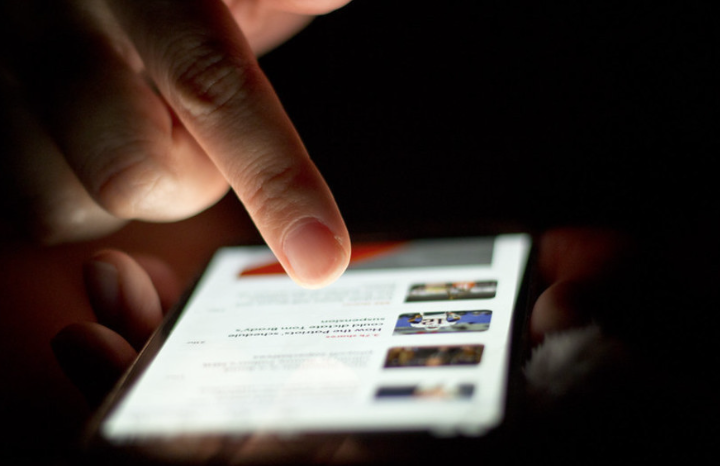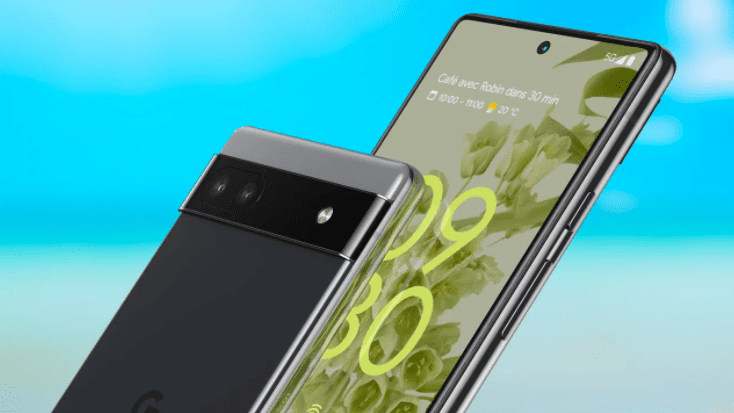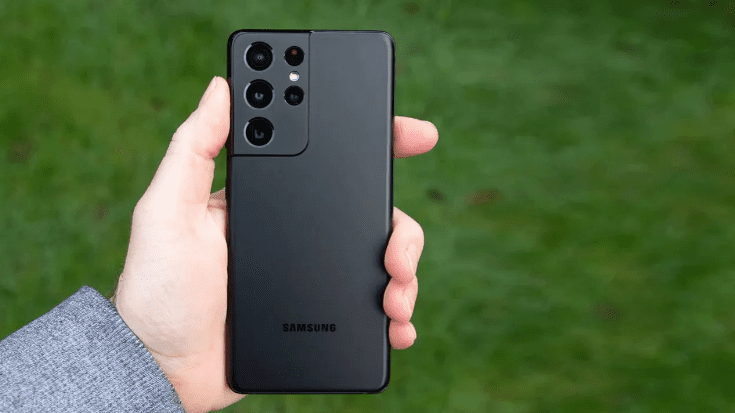We look at our phones 85 times a day! Constant notifications are stressing us out… How do we get rid of it?
The notification sounds coming from our smartphones, which we can’t put down or step without, both distract us and stress us out. Research shows that a person checks their phone an average of 85 times a day, and that these notifications interrupt our productivity by about 40 percent while we are busy with a task. So how do we get rid of the negative effects?
As technology develops, technology-related problems are increasing. We are now all under the control of our smartphones. We set alarms, write reminders, check our e-mails, receive discount messages, correspond in dozens of WhatsApp groups, and follow what is happening around us on our social media accounts. As a result, the sound of notifications almost never stops.
Sharon Horwood, a senior lecturer in psychology at Deakin University in Geelong, Australia, said there is evidence that the mere presence of smartphones, whether silent or beeping, is enough to distract us.
WE CHECK PHONES EVERY 15 MINUTES
Phone Notifications throughout the day make us feel more stressed and anxious because of the need to respond.
Scientists warn that each new notification on your smartphone changes the chemistry of your brain by triggering cortisol, known as the ‘Stress Hormone’. Whenever a notification arrives, the body releases a small amount of cortisol, which causes an increase in heart rate, tenses muscles and makes palms sweat.
Estimates vary, but on average, a person checks their phone 85 times a day, every 15 minutes. It can take several minutes to fully regain our concentration after these interruptions.
This kind of attention loss may not be a big deal when you’re watching TV, but when you’re driving, studying, working or spending time with loved ones, these interruptions can cause significant problems.
GIVE YOUR BRAIN A BREAK
Research confirms that there is evidence that phone notifications cause reduced productivity, poor concentration and distraction at work and school. But is there any evidence that our brains work harder to manage attention?
A study of people’s brainwaves found that those who described themselves as heavy smartphone users were more sensitive to push notifications than those who said they were light users.
Heavy users were significantly worse at regaining their concentration on a task after hearing the notification than light users. Although incoming notifications interrupted concentration for both groups, heavy users took much longer to refocus on what they were doing.
And it turns out that any procrastination in getting back to what you were doing after being distracted after responding to a notification can also make you feel guilty.
Speaking to CNN International, Horwood advised that muting the phone won’t solve the problem, and that we should start by turning off all non-essential notifications:
— If you check your phone frequently, know that putting it on silent will not magically solve the problem. What you need is a change in behavior and this is the hardest one. It may take some time before you see lasting change. Just like trying to quit smoking, lose weight or start an exercise program.
— Start by turning off all non-essential notifications on your phone.
— Charge your phone at night in a different room from your bedroom. Notifications can prevent you from falling asleep and wake you up repeatedly throughout the night.
“We think that notifications when we’re busy with a task interrupt our brain’s efficiency by about 40 percent,” said Dr. Steve Bea, a psychologist at the Cleveland Clinic.
Previous research by neuroscientists at the University of California, Berkeley, has found that high cortisol levels can create long-lasting brain changes that can leave people in an almost constant state of fight or flight.
Dr. Bea underlined that you therefore need to create a new habit to change your brain chemistry, adding:
“Initially, when you try to avoid or limit technology, you will be a little uncomfortable. You’ll be worried that you’re missing something or that something is holding you back, but over time the brain will get used to it.”
Yes, smartphones with constant notifications have shortened our attention spans and increased our stress levels, but we don’t need to give up technology completely to regain our concentration, we just need to learn a little self-control.
Dana G. Smith, a health and science writer for The New York Times, wrote an article titled “How to focus like it’s 1990” about how to get back to our attention spans of yesteryear. Smith said that you first need to understand what distracts you and explained what can be done to do that:
“Notifications from your phone are one of the most important sources of distraction. The constant sound of notifications distracts you from your actual work. Since our brains are evolutionarily designed to pay attention to novelty, it is almost impossible to ignore these alerts. And when you try, your anxiety levels increase.”
In a study of heavy to moderate smartphone users, participants were connected to monitors that measured their arousal levels and their phones were taken away from them. The researchers then texted the participants multiple times. The participants’ phones were close enough to be heard but too far away to be controlled. The participants’ arousal levels increased when they received notifications on their phones. “Participants felt they should respond to the message, or at least see who it was from, but they couldn’t,” said study co-author Larry Rosen, professor of psychology at California State University, Dominguez Hills. This made them anxious,” he said.
Dana G. Smith noted that turning off notifications is a good way to reduce distractions, but it won’t solve the problem completely, and quoted experts and researchers on the subject.
Dr. Larry Rosen said that research shows that more Smartphone use is associated with higher levels of cortisol and other stressors, and that even when there is no notification such as a ringtone or vibration, people get a strong internal cue to check messages or social media, saying, ‘Oh my God, I need to check!
Prof. Gloria Mark, who works in the IT sector at the University of California, said that we pick up our phones because we need a break when we’re busy because our brains can’t focus for long periods of time and this is normal, adding:
“Just as a person can’t lift weights all day, we can’t concentrate for long periods of time. A short walk or 10 minutes of meditation can probably help, but there’s nothing inherently wrong with scrolling through social media or playing a repetitive game like Candy Crush to regain focus. But the problem starts when breaks become longer or more frequent than you planned.”
Dr. Rosen recommended using what he called a ‘technology break’ to increase attention span and listed the following details:
— Before focusing on a task, take a minute or two to open all your favorite apps. Then set an alarm for 15 minutes, silence your phone, turn it upside down and set it aside. When the alarm goes off, you have another minute or two to check your phone. Repeat this cycle three or four times before taking a longer break from your work (Pomodoro, the technique of breaking things down).
— The goal is to gradually increase the time between technology breaks, up to 20, 30 and even 45-minute stretches.
Once the alarm goes off, you’ll know you’re ready to focus for longer, and you’ll want to keep doing what you’re doing instead of reaching for your device, Dr. Rosen said, suggesting that you apply this rule at dinner, especially if you often disagree with teenagers about cell phone use at the table.
Another strategy Dr. Mark suggests is to increase your self-awareness of your technology use. For example, when you have the urge to open Instagram, ask yourself why: Are you feeling tired and need a break? Will going on Instagram help improve this situation?
But neither Dr. Mark nor Dr. Rosen recommended declaring a phone-free day or blocking certain websites.
Technology breaks and self-awareness can help control the urge to jump from screen to screen, but Maryanne Wolf, a visiting professor at the University of California, said, “We just read a screen, we don’t engage deeply with it. This is because screens are designed to make us read, scan, skim and scroll very quickly. As a result, we don’t give our full attention to what we are looking at and we are more prone to missing information,” he said.
Adding that our brains tend to read printed materials more slowly because we are more likely to go back and double-check what we have just read, Dr. Wolf said that we develop a cognitive impatience with reading, so we should try to devote at least 20 minutes a day to reading books to get back to the practice called “deep and quality reading”.
“Set an alarm for 20 minutes, put your phone on silent and start reading slowly and deliberately. Don’t get frustrated if you don’t get into it right away,” Dr. Wolf said, stressing that when he tried this on himself, it took him two weeks to fully engage and enjoy what he was reading. Even if you don’t enjoy it much, this exercise can help you regain your ability to focus deeply on what you are doing.
Source: The New York Times, Daily Mail, CNN

